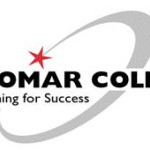- Domeniu: Education
- Number of terms: 12355
- Number of blossaries: 0
- Company Profile:
Founded in 1946, Palomar College is a public two-year community college in the city of San Marcos, located in north San Diego County, California. Palomar offers over 300 associate degree, certificate programs and is designated by the U.S. Department of Education as an Hispanic-Serving Institution ...
A progressive, irreversible disease characterized by degeneration of brain cells that commonly result in severe loss of memory, the ability to think, and pay attention. There are also usually major changes in personality. Alzheimer syndrome most often occurs in late middle and old age. Genetic factors probably play a role since this syndrome is more common in some families.
Industry:Anthropology
A genetically inherited sex chromosome abnormality only affecting females. Women with Turner's only have one X chromosome--their genotype is X0. These individuals are short in stature, averaging 4'7" and have distinctive webbed necks (i. E. , extra folds of skin). They have exceptionally small breasts and generally lack secondary sexual characteristics. Their ovaries do not develop normally and they do not ovulate. They are in a sense postmenopausal from early childhood and are sterile. In some individuals, there is slight mental retardation. Turner syndrome is rare--current estimates of its frequency range from 1 in 3000 to 1 in 10,000 females.
Industry:Anthropology
A degenerative disease characterized by chronic inflammation of the joints and accompanying pain.
Industry:Anthropology
A presumed human "race" consisting of Europeans and other closely related people. The classification is based on the discredited typological model. The term "Caucasoid" was derived from the Caucasus Mountains on the southeast fringe of Europe between the Black and Caspian Seas. This region was once thought to be the homeland of Indo-Europeans.
Industry:Anthropology
A gene that can alter the expression of another gene in the phenotype of an individual.
Industry:Anthropology
A hypothesis to explain the origin of modern Homo sapiens. It proposes that modern people only evolved from archaic humans in Africa and that these new people expanded into Europe and Asia replacing all existing older populations. In other words, we all have relatively recent African ancestry. See regional continuity model and assimilation model.
Industry:Anthropology
A group of similar fossils considered to be members of the same species because the range of their morphological variation does not exceed the range of variation of a living species. See species.
Industry:Anthropology
A genetically inherited disease in children that results in chronic fluid development in the lungs, making breathing difficult. This disease also prevents normal absorption of fats and other nutrients from food. Cystic fibrosis occurs as a result of inheriting a recessive allele for if from both parents. This is ultimately a fatal disease, but with modern medical care, about 2/3 of the people with it survive into early adulthood. About 30,000 people have cystic fibrosis in the U. S. Today.
Industry:Anthropology
A date that places an event in its chronological position with reference to a universal time scale such as a calendar. Such dates usually are given in terms of the number of years before or after a calendar starting point. For instance, 1950 B. C. Was 1950 years before the beginning date of the Gregorian calendar, which is commonly used today. Chronometric dating methods include the use of written records, dendrochronology, and radiometric methods. See relative date.
Industry:Anthropology
A class of masculinizing hormones. Both men and women produce them, but males normally produce much more. Testosterone is mainly produced in the testes of males. Smaller amounts are produced by the cortex of the adrenal glands in both males and females.
Industry:Anthropology
